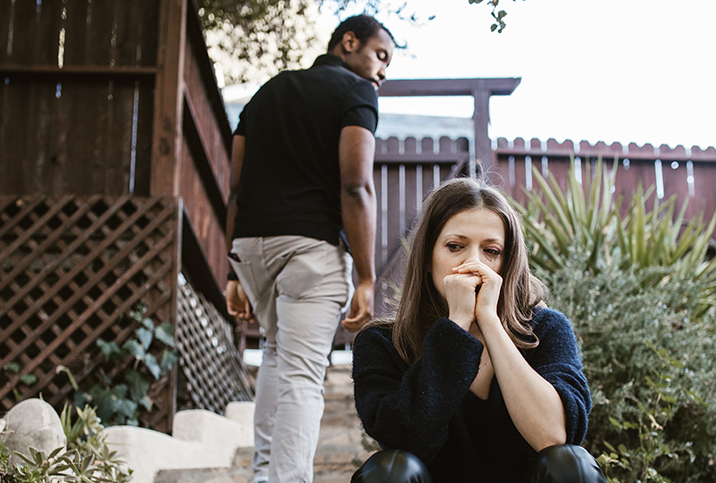Walk Away from Fights to Save Your Marriage

Every marriage is unique, but one aspect most have in common is the occasional argument. While you're working through your differences, it's never OK to make hurtful comments to your partner. Usually, a genuine apology will help, but the best way to save your marriage from disaster is to know when to walk away to avoid hurting your partner in the heat of battle.
Accept your hot temper
We all want to believe we're calm, cool and collected or at least like to think that when we lose our temper, it's for a good reason. Anger can help process intense emotions, but too much anger shifts our brain into fight-or-flight mode, and this is where real, lasting damage can be inflicted.
As a recovering hothead, I've spent many days apologizing for the hurtful remarks I've said during a fight. While I will say this is the true test of your relationship, it's no excuse for hurting your partner. Over the years, I've found that walking away not only spares my partner's feelings, but it's also the best way to overcome my anger.
How to walk away
The only way to successfully walk away is to have a plan in place. This is not something you should have to figure out in the heat of the moment. This plan needs to be laid out and discussed with your partner in advance of a disagreement: If you decide it's time to walk away, your partner needs to understand your cues. Having your partner in on the plan also allows him or her to be an ally in your overcoming your temper.
- Discuss why a plan is needed. Explain to your partner that you want to avoid saying hurtful things and voice your desire for your partner's help in identifying when you're reaching your boiling point.
- Create a signal. Pick a word or phrase to signal when you are walking away, such as "pause." I like to say, "I need a break," because it reminds my partner that it is only a temporary hiatus.
- Reaffirm your commitment. Before you leave, remind your partner that this is an important issue, but you need a moment to get your thoughts together in order to return ready for a real conversation. The biggest mistake you can make is walking away on poor terms.
- Go to a neutral corner. This pause means both of you get to take time to yourselves to calm down and collect your thoughts; this means not irritating yourself further while you're away. Remember, you and your partner must come back together to resolve the issue.
The most important aspect of walking away is to remember that it applies to everyone in the house. Your partner and even your children can also benefit from taking time to calm down. It's important that you return to the discussion only when all parties are ready.
The benefits of walking away
Walking away from a fight keeps you from making hurtful comments, and it also keeps the argument focused on the issue. When emotions run high in an argument, it can be tempting to bring up past grievances and related annoyances in an ever-escalating back-and-forth. The benefit of returning to the issue with a more neutral perspective is that your intentions remain focused on solving the problem, not on outdoing your partner's last statement or "winning."
Fully processing your disagreements also avoids hurt feelings. An abundance of hurt feelings will often lead to resentment that could cause lasting damage and future disagreements.
Learning how to walk away was one of the hardest skills I had to learn in my marriage. I realized that I was often so interested in having the last word or proving my point that I forgot to listen to my partner. Once I learned that walking away was not admitting defeat, I was able to use this tool to really process what my partner was trying to tell me. This change in focus forced me to step into my partner's perspective, and I realized that we were often fighting over the desire to be seen and heard, not over who was supposed to water the plants or take out the trash.
Healing old wounds
Ultimately, learning to walk away when situations get too intense prioritizes your relationship over any perceived infraction. Having the ability to step back and look at the big picture shows your partner that you care more about maintaining a healthy relationship and solving the problem than determining who is right. The key to fostering a healthy marriage is being able to hear your partner's concerns and acknowledge that his or her feelings are valid.

















